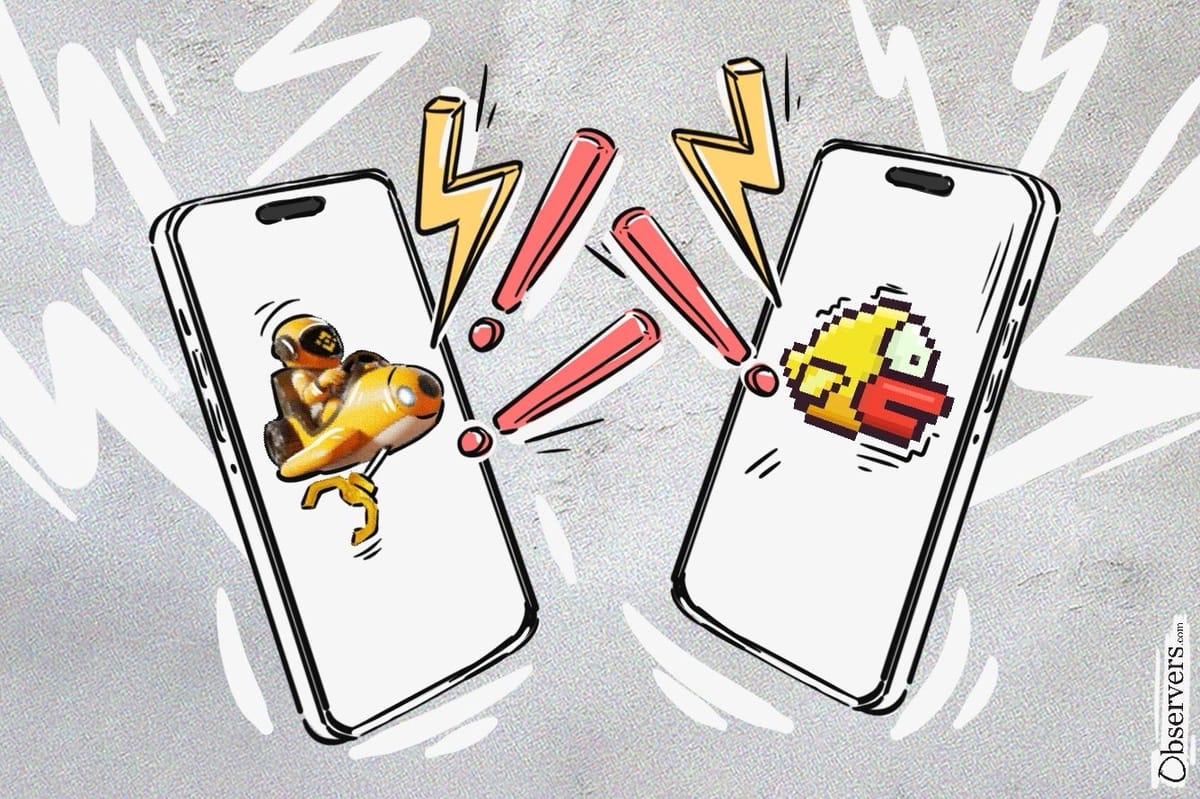
Flappy Bird and Binance, two widely known internet names, have both launched mini-games on Telegram this week.
As tap games, their mechanics take little time to explain.
Yet, how they came to exist is slightly more complex, as both launches are shrouded in controversy.
Flappy Bird Mini-Game's First Obstacle
Flappy Bird, the game that conquered smartphone users a decade ago, launched its Web3 version, built on TON blockchain, on Telegram on Monday, September 16.
The game is published in partnership with Flappy Bird Foundation Group and Notcoin.
Just like its previous version, users have to guide the flappy bird safely through several objects. The crypto addition is that, by playing, gamers are rewarded with FLAPPY tokens.
Dong Nguyen, the Vietnamese programmer who created the game back in 2013, is not on the team that developed the crypto Flappy Bird version and doesn't support its release or cryptocurrencies.
In its first post on X since 2017, the video game artist wrote, "No, I have nothing related to their game. I did not sell anything. I also don't support crypto."
Web investigations have shown that in 2023, a company called Gametech Holdings challenged Nguyen's claim on the "Flappy Bird" name with the US Patent and Trademark Office (USPTO).
The programmer failed to respond to the USPTO's case notice, and his trademark was invalidated in January 2024.
Gametech then acquired the Flappy Bird trademark and sold it to the Flappy Bird Foundation.
The Failed Launch Of Binance's Space Game
Moonbix, Binance's first mini-game on Telegram, is a play-to-earn adventure in which users control a spaceship to collect items across galaxies and earn points redeemable in crypto.
Rumors that the crypto exchange was launching its first casual game on the messaging app were circulating when suddenly, the game was leaked on Tuesday, September 17.
The leak forced the Binance customer support team to issue a statement apologizing for any inconvenience users might have suffered and alerting them of scams that requested them to connect their Binance wallet to the mini-app game.
Despite the controversy, the game is proving to be a success, reaching 10 million players in a few days, according to data from the app's leaderboard.
This is not the first time Binance has suffered from internal information leaks. In February this year, after the Ronin token listing was spoiled by forerunners, the management announced measures to improve the internal controls and even offered a $5 million snitch bounty. However, as we can observe the issue with the world's largest crypto exchange remains unsolved. This time, Binance downplayed it, focusing instead on getting the last details ready to launch the game promptly.

